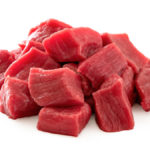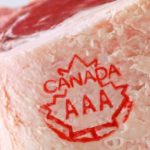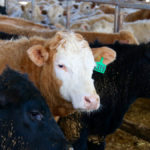Tag Archives canadian food inspection agency

Food safety, surveillance focus of new CFIA funding
New trade agreements drive need to monitor imports, help with exports

Livestock feed imports restricted to limit disease risk
There are cascading effects in the global feed and ingredients system as countries, including Canada, clamp down to limit African swine fever risk

CFIA to consult on new near-meat, non-meat guidelines
Clarity for labels, promotion, composition to be considered

Easier interprovincial meat trade could be allowed in a meat shortage
A process was recently created to allow meat that isn't federally inspected to move across provincial borders

CFIA funded to build up inspection corps against COVID-19
Short spells of disruptions still to be expected at food plants

Seed Synergy plan moves forward
Partnership currently working on the details of the program

CFIA rethinking limits on travellers’ personal food imports
Consultation running until March

Federally licensed university abattoir upgraded
University of Guelph abattoir helps small research projects get processed

What’s the future for Ontario’s beef herd?
Commodity organization says elimination of Ryding-Regency Meat Packers as a cattle-buyer hurts an industry already constrained by inadequate processing capacity



